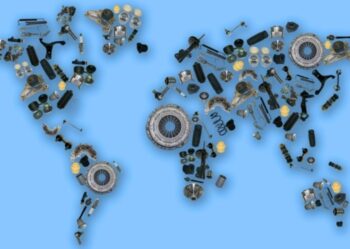Poka-Yoke : improvement for production and logistics

In a previous article, we talked to you about the different TPS tools in lean manufacturing and more precisely about those allowing to improve logistics such as MMOG/LE, the 5S method or Jidoka.
Today, we are going to see how the Poka-Yoke, a continuous improvement tool like many in TPS, allows to increase productivity and the supply chain.
The Poka-Yoke definition :
Poka-Yoke is one of the tools of TPS. It is a continuous improvement technique that not only reduces and limits unintentional errors in the production and logistics processes, but also corrects any potential malfunctions that may occur.
In an increasingly complex logistical context with a constantly growing volume of orders and increasingly urgent requests requiring more agility, responsiveness and speed, logistics managers and more particularly warehouse managers must pay particular attention to eliminating any possible failures leading to delays and a fortiori a loss of customer confidence and therefore a drop in turnover.
This is where the Poka-Yoke comes in. Coming straight from Japan, like many TPS tools, Poka-Yoke literally translates as “anti-error” but could be translated in a more general sense as “error prevention” or simply “deception”.
It is a method of continuous improvement that allows the prevention of potential errors to be integrated from the outset through the “Do” – “Check” – “Correct” process, with the aim of putting in place the right means to guarantee that the desired result is obtained at once and on the first try.
This continuous improvement technique aims to avoid defects in all production and logistics processes.
The aim is to ensure that mistakes are never made and that monitoring is therefore unnecessary.
When we talk about Poka-Yoke, we are also talking about “error-proof” systems, i.e. systems that are as “error-proof” as a “water-proof” watch.
The advantage of the Poka-Yoke method:
The Poka-Yoke technique can be used whenever an error could occur. It can be successfully applied to any process to prevent all types of errors:
- Processing error: process operation missed or not performed according to the standard procedure.
- Setup error: using the wrong tooling or setting up the machine incorrectly.
- Missing part: not all parts are included in the assembly, joining, or other processes.
- Incorrect part/component: wrong part used in the process.
- Operation error: Performing an operation incorrectly; having the wrong version of the specifications.
- Measurement error: errors in the machine setting, measurements or dimensions of a part supplied by a supplier.
How to implement Poka-Yoke?
Before implementing the Poka-Yoke technique in a production plant or warehouse, it is important to take stock of the situation.
- Start by identifying each process
- Then analyze each process
- Examine any potential process malfunctions
- Choose the right Poka-Yoke approach and take a holistic approach
- Test the method and see if it works.
- Train the teams
- Review performance and measure success.
The different types of Poka-Yoke
In order to set up the Poka-Yoke, and after an assessment of the situation, you just have to choose, among the 4 different types of Poka-Yoke, the one that is the most adequate and that proposes a solution that minimizes or avoids all possible errors.
Of course, there is no such thing as perfection, but some unavoidable errors are still allowed, and in this case it is necessary to think about setting up a detection and reaction system, in order to reduce their impact.
The different types of Poka-Yoke include
- The sequential type: based on the preservation of an order or sequence of a process, if this is not respected, the work cannot be finished and it therefore becomes impossible to move on to the next process.
- Informative type: based on clear, simple and direct information that helps operators to carry out the different operations without making mistakes.
- The grouped type: based on the preparation of kits with all the material and parts necessary to carry out an operation. This way, operators do not waste time looking for the material because they already have it on hand.
- The physical type: based on error reduction. These are changes in the use of certain devices.
Through all these types of Poka-Yoke, the aim is to eliminate errors in repetitive activities or in processes where operators can make mistakes due to lack of knowledge.
In this way, operators can concentrate on their work, instead of wasting time checking or correcting malfunctions.
SNECI and Poka-Yoke support
With 70 years of experience in the automotive industry, a complex industry of excellence, and 10 subsidiaries worldwide with 450 experts, we support both manufacturers and suppliers in improving their processes for greater profitability and safety.
We intervene upstream during the audit phase of the anti-error systems – Poka-Yoké – on our clients’ production lines, thus enabling us to identify and examine each process by defining each time
- Description of the products
- Quantities produced or conveyed
- Number of processes
- Details of each process
- Size of the processes: m2, number of operators, etc.
- Type of suitable Poka-Yoke – sequential, grouped, informative or physical
We then support you in the implementation of the Poka-Yoke adapted to the determined convergence plan.
Our proven expertise with industrial companies in various sectors around the world enables us to support you in controlling quality, cost and lead time aspects, in managing risks and opportunities thanks to our technical and quality skills, as well as in industrial reorganization and supplier management.
We intervene to guarantee the optimization of production lines through tailor-made and innovative solutions integrating new technologies (dematerialization, robotization, factory 4.0…) to increase your performance while integrating sustainable development issues.
If you would like to know more about our Poka-Yoke support, do not hesitate to contact us!






